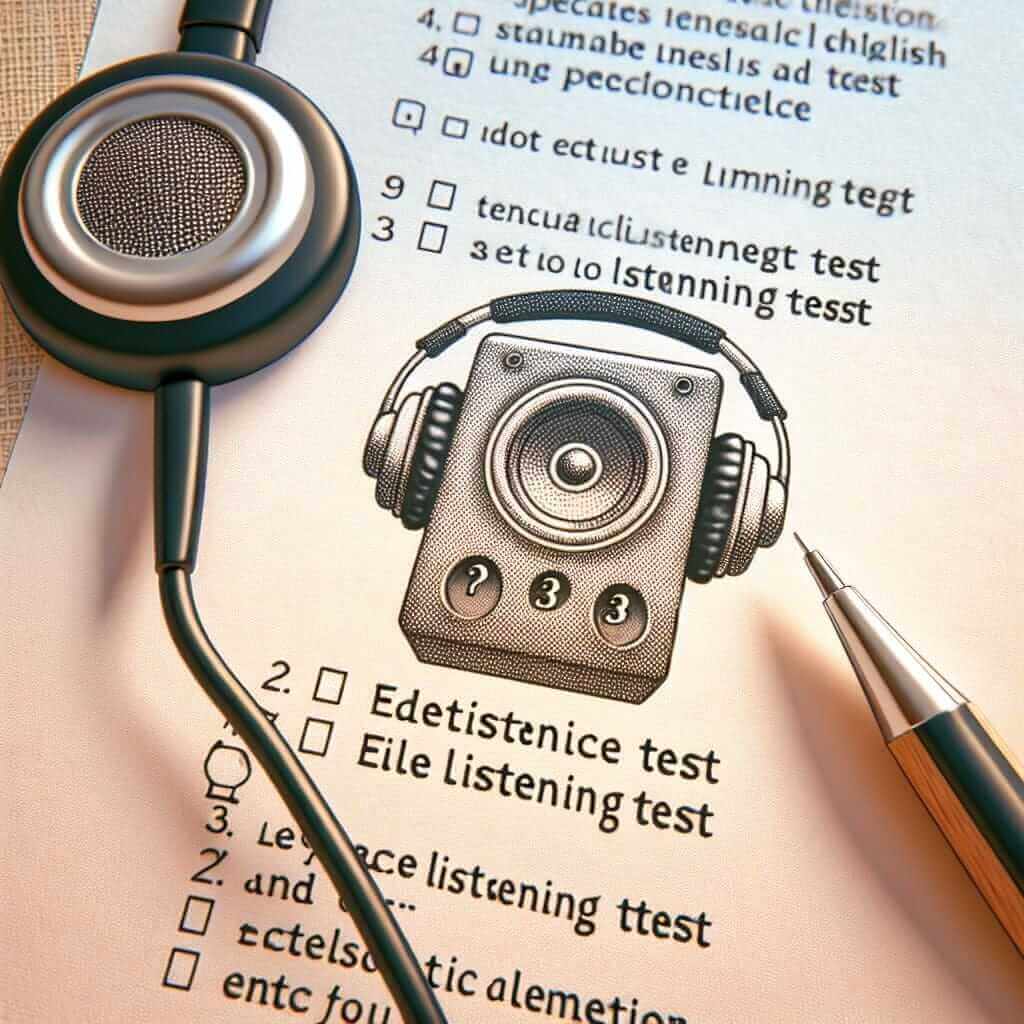As an IELTS instructor with over two decades of experience, I’ve witnessed countless students grapple with the IELTS Listening test. A high score in this section is entirely achievable with the right strategies and consistent practice. This comprehensive guide will equip you with the knowledge and techniques to excel, drawing from my years of experience and insights into the exam.
Understanding the IELTS Listening Test
The IELTS Listening test assesses your ability to comprehend spoken English in various contexts. It comprises four sections, each with a different theme and level of difficulty:
- Section 1: A conversation between two people in an everyday social setting.
- Section 2: A monologue or conversation related to a social context, like a tourist information announcement.
- Section 3: A conversation between up to four people in an educational or training context, such as a university tutorial.
- Section 4: A monologue on an academic subject, like a university lecture.
You will hear each recording only once, and you’ll have time to read the questions beforehand and review your answers afterwards.
Key Strategies for Success
1. Develop Effective Listening Habits
- Active Listening: Don’t just passively hear the words; focus on understanding the meaning, speaker’s tone, and the context of the conversation.
- Keyword Recognition: Train yourself to identify keywords and phrases that signal important information, such as dates, names, and changes in topic.
- Note-taking: Develop a system of shorthand and symbols to jot down essential points while listening.
2. Enhance Your Vocabulary
- Focus on IELTS Topics: Familiarize yourself with common themes that frequently appear in the Listening test, such as education, environment, and technology.
- Collocations and Phrases: Pay attention to how words are used together in common phrases and collocations. This will help you understand the context and meaning more easily.
- Regular Practice: Make vocabulary building a daily habit. Use flashcards, vocabulary apps, and engage with English language materials on these topics.
3. Master Question Types
The IELTS Listening test employs a range of question types, each requiring a specific approach. Familiarize yourself with:
- Multiple Choice: Read all options carefully before listening and identify keywords in both the question and answer choices.
- Sentence Completion: Pay attention to grammatical accuracy and ensure your answer fits logically and grammatically within the sentence.
- Form/Note/Table/Flow-chart Completion: Scan the visual carefully beforehand to anticipate the type of information required.
- Short-Answer Questions: Be mindful of word limits and provide concise, accurate answers.
4. Practice with Authentic Materials
- Use Official IELTS Practice Tests: These provide the most accurate representation of the actual test format and difficulty.
- Listen to English-language Media: Podcasts, news broadcasts, documentaries, and even TV shows can be valuable resources for improving your listening comprehension.

Example from an IELTS Listening Test
Let’s consider a sample question from Section 1 of the IELTS Listening test:
You will hear a conversation between a customer and a travel agent. Complete the form below. Write NO MORE THAN TWO WORDS AND/OR A NUMBER for each answer.
Holiday Booking Form
- Name: John __
- Destination: __
- Number of people: __
- Departure date: __
- Type of accommodation: __
Audio Script:
Travel Agent: Good morning, sir. How can I help you today?
Customer: Hello, I’d like to book a holiday for myself and my wife. We’re interested in going to Greece.
Travel Agent: Certainly, sir. And when are you thinking of traveling?
Customer: We’d like to go in the first week of June, preferably around the 5th.
Travel Agent: Excellent. And what type of accommodation are you looking for?
Customer: We prefer staying in hotels, ideally something with a sea view.
Answers:
- Name: John (no additional information needed)
- Destination: Greece
- Number of people: 2
- Departure date: 5th June
- Type of accommodation: Hotel
Essential Tips for Test Day
- Manage Your Time Wisely: Use the time given to read the questions carefully before each section begins.
- Stay Focused and Avoid Distractions: Concentrate on the recording and avoid getting stuck on a single difficult question.
- Answer All Questions: Even if you are unsure, make an educated guess, as there is no penalty for incorrect answers.
- Check Your Answers: If you have time at the end, review your answers for any errors or omissions.
Conclusion
Achieving a high score in the IELTS Listening test is a combination of targeted strategies, consistent practice, and a deep understanding of the test format. By implementing the advice and techniques outlined in this guide, you can significantly improve your listening comprehension skills and approach the test with confidence. Remember, dedication and perseverance are key to unlocking your full potential in the IELTS Listening exam.